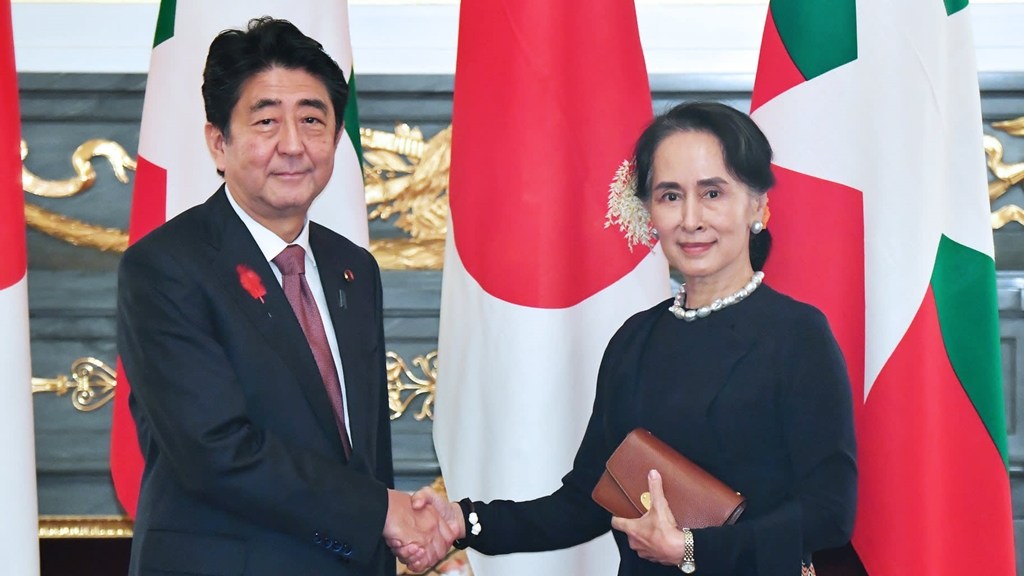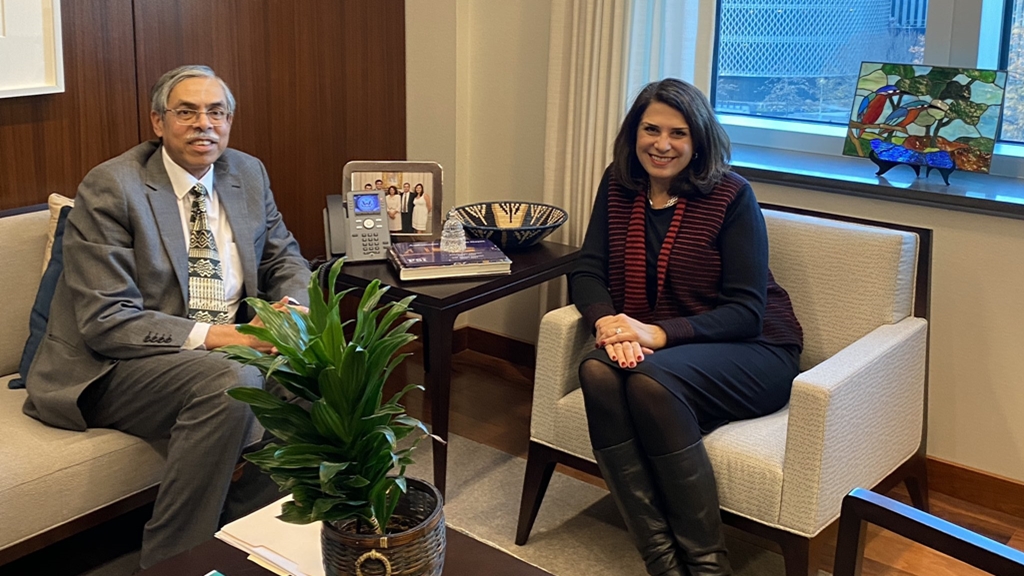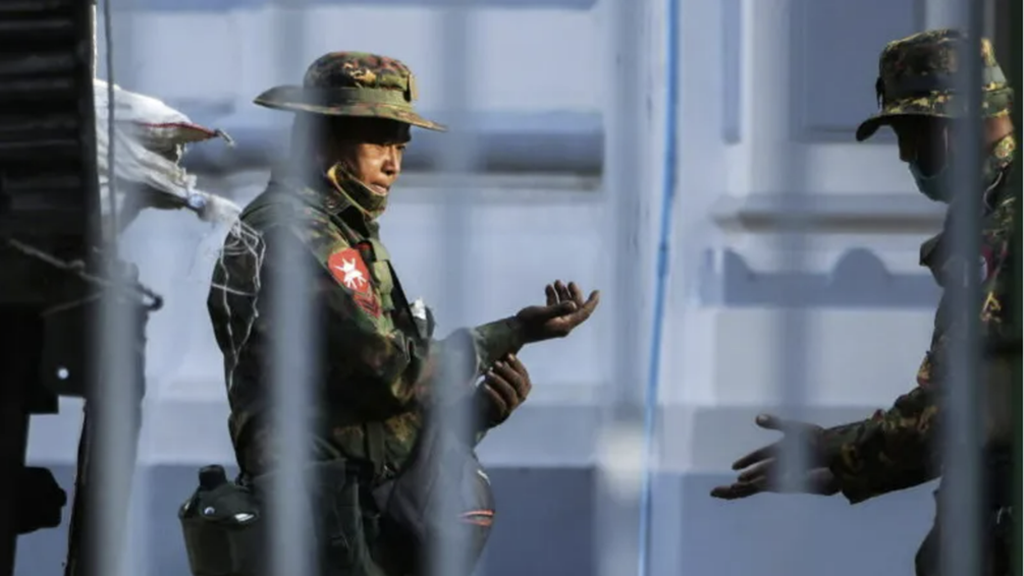
Letter From America: The peculiar case of Japan vis-à-vis the Rohingya tragedy
- 27/10/2019
- 0
By Habib Siddiqui, Asian Tribune
Recently Myanmar’s de facto leader Suu Kyi met the Japanese Prime Minister Shinzo Abe in Tokyo.
“With regard to the alleged human rights violations in Rakhine State, it is indispensable that the Myanmar government and military take appropriate measures promptly,” Abe was quoted by the Japanese Foreign Ministry as telling Suu Kyi in their meeting.
There is nothing ‘alleged’ any more about Myanmar’s genocidal crimes and intent against the Rohingya people. But mindful of Myanmar’s ugly face-saving position trying to evade any responsibility for its horrendous crimes and its willful abhorrence for the ‘R’ (Rohingya) term, Abe was understandably diplomatic in his choice of words when hosting Suu Kyi. But how long can his government continue to please a murderous, genocidal criminal regime?
Since 2017, nearly 742,000 Rohingya refugees have fled to Bangladesh in search of safety, according to the United Nations. The Rohingya are considered stateless people in Buddhist Myanmar where for more than half a century they have faced genocidal pogroms, unfathomed discrimination and unparalleled persecution. Each and every one of the rights enshrined in the Universal Declaration of Human Rights are denied to them. Before the current crisis unfolded, they were already recognized as the most persecuted people of our time.
While tens of thousands of Rohingyas were killed in Suu Kyi’s Myanmar and perhaps even a larger number raped in one of the most calculated genocidal pogroms of our time in the full view of the world community, forcing exodus of so many survivors to seek refuge in Bangladesh – their repatriation to their ancestral land in Arakan (Rakhine) state remains a challenge. The world community has done virtually nothing to ensure their safe return in UN-monitored safe zone with their citizenship rights and dignity intact as free citizens of Myanmar. In particular, the roles of China and India have been ignoble by trying to protect Suu Kyi’s criminal regime.
Of course, we can understand such rogue attitudes from two of the global upstarts that through their own crimes have proven to be guilty of creating their own version of the Rohingya crisis with the minority Uighur and Kashmiri Muslims who today face extinction – political, social, economical and cultural.
Since its birth, Burma (later named Myanmar) has been a highly racist and fascist state. Its government had changed but its basic incoherence as a modern state that is respectful of its diverse religious, ethnic and racial groups has remained the same. Suu Kyi inherited a criminal regime and now leads another criminal regime. She remains a remorseless mass murderer and has mastered the art of political doublespeak.
During her meeting with Abe she expressed her intention to address the Rakhine issue “correctly” and take necessary steps. Abe pledged Japan’s support. It is worth noting that despite Myanmar’s genocidal crimes, the Japanese government remains one of its major donors. Last year, Abe promised an aid package of 7.73 billion USD to Suu Kyi as Japan competed for regional influence with China, which remains Myanmar’s biggest trading partner.
How long can Japan evade its own culpability for birthing the Rohingya crisis? Its blood-stained connection is rather very deep and old.
After all, imperial Japan had played a dreadful role during the second world war after occupying Burma. Its occupation led to the ethnic cleansing of hundreds of thousands of Muslims all across Burma, let alone the Indian community that hitherto provided the majority of the employees in the service of the British government. Many of the survivors fled to the British-ruled Bengal in India. The Rohingyas of Burma were particularly affected when the Rakhine Buddhists and Burmese fascists, aided by the Japanese occupation forces, conducted horrendous crimes of obliterating their existence in the southern part of the Arakan state. They faced extinction, rape and pillage; the survivors fled to the north in what would later be known as the Mayu Frontier region and fought on the side of the British forces against the fascist Rakhine and Buddhist forces that were allied with the Japanese occupation forces.
Sadly, the British colonial government [as it has done in many of its former colonies] betrayed the Rohingya people soon after Japan had lost the great war. In spite of their cultural and religious ties with Bengal, the Rohingya majority territory in the northern Arakan state was made part of newly independent Burma. And the rest is history!
As is quite evident now, Myanmar has no desire to take the Rohingya refugees back. Worse still, the remaining 600,000 Rohingyas that are inside Myanmar face daily persecution and are more vulnerable today as a religious and ethnic minority than any time before.
As hinted above, much of the problems that divide the major communities in the Arakan – Rakhine and Rohingya – go back to those tragic years of the Japanese occupation of Burma.
It is sad to see that even after some 70 years, Japan continues to provide financial incentives and aids to the Burmese governments, in spite of the latter’s incessant crimes against the ethnic Rohingya and other minorities.
So, while one may appreciate Prime Minister Abe’s call to redress the Rohingya issue, it does not absolve his government of providing a lifeline to the murderous regime that is guilty of genocide. One cannot but also question the wisdom of Abe’s government that continues to fatten a rogue beast that has proven to be savage and murderous.
What Suu Kyi’s government needs is a big stick and not economic aid that only energizes its murderous instinct and boosts its savagery.







